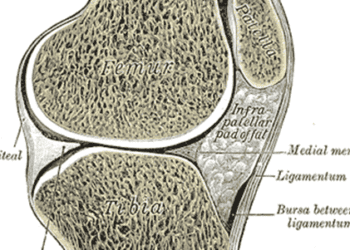The VITAL trial: Omega-3 supplementation does not reduce risk of cardiovascular events
1. Healthy adult patients randomized to receive marine n-3 fatty acids (omega-3) experienced similar rates of adverse cardiovascular events as those receiving a placebo after 5 years of treatment.
2. Risk of death from any cause was similar for patients in the omega-3 and placebo groups.
Evidence Rating Level: 1 (Excellent)
Study Rundown: Studies with varied endpoints have suggested omega-3 fatty acids may be beneficial for primary prevention of cardiovascular disease. Many of these studies are in selected or otherwise non-generalizable populations, thus making them difficult to apply to patients without cardiovascular risk factors. The Vitamin D and Omega-3 Trial (VITAL) was conducted to evaluate how omega-3 supplements may affect healthy patient’s risk for cardiovascular events or cancer. After a median follow-up of 5.3 years, patients randomized to the omega-3 group experienced similar risks of a major cardiovascular event as patients in the placebo group. Additionally, risk of either cancer diagnosis or death was not significantly different between groups randomized to omega-3 supplements or placebo.
This study was conducted in a large, healthy adult population making its results more generalizable than most prior studies. Strengths include the number of patients included, the randomized factorial design evaluating both omega-3 and vitamin D supplementation, and the extensive subgroup analysis. Limitations include study of a single dose of omega-3 supplementation and no statistical control for multiple hypothesis testing.
Click to read the study in NEJM
Relevant Reading: Marine omega-3 fatty acids and inflammatory processes: effects, mechanisms and clinical relevance
In-Depth [randomized controlled trial]: This randomized, placebo controlled trial enrolled healthy mature adult patients (men over 50, women over 55) between 2011 and 2014. Patients were factorially randomized to receive supplementation with a standardized dose of vitamin D (2000 IU per day), omega-3 fatty acid (840 mg per day, n=12933; n=12938 for patients receiving omega-3 placebo), both, or neither. Results of the study on outcomes associated with vitamin D supplementation are reported elsewhere. The primary endpoint of the study was a cardiovascular composite of myocardial infarction, stroke, or cardiovascular death. After a median of 5.3 years follow-up, this composite outcome occurred for 386 and 419 patients in the omega-3 and placebo groups, respectively (hazard ratio [HR], 0.92; 95% confidence interval [CI], 0.80 to 1.06; P=0.24). Of the secondary cardiovascular outcomes assessed, only the hazard ratio for myocardial infarction risk favored patients in the omega-3 group (0.72; 95% CI, 0.59 to 0.90), with 95% CIs of hazard ratios for death from cardiovascular causes, stroke, and expanded composite of cardiovascular events all crossing 1. Invasive cancer was diagnosed in 820 and 797 patients in the omega-3 and placebo groups, respectively (HR, 1.03; 95% CI, 0.93 to 1.13; P=0.56). Incidence curves for cancer diagnosis of all types appeared similar throughout follow-up. When analysis was performed in multiple subgroups there was no subgroup found to significantly benefit from omega-3 supplementation with regards to the composite cardiovascular risk outcome. There was no difference in serious adverse events or gastrointestinal symptoms between the placebo and omega-3 groups.
Image: PD
©2019 2 Minute Medicine, Inc. All rights reserved. No works may be reproduced without expressed written consent from 2 Minute Medicine, Inc. Inquire about licensing here. No article should be construed as medical advice and is not intended as such by the authors or by 2 Minute Medicine, Inc







